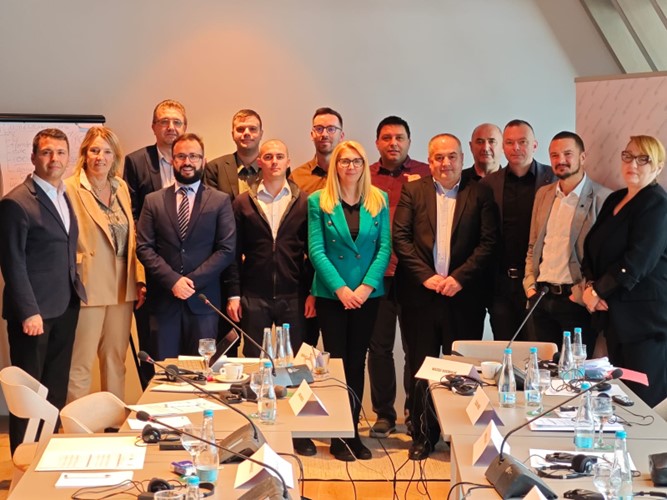UNODC and Bosnia and Herzegovina Collaborate to Strengthen Prosecution of Complex Money Laundering and Terrorism Financing Cases

9-11 December 2024, Igman, Bosnia and Herzegovina - The United Nations Office on Drugs and Crime (UNODC) has long been at the forefront of global efforts to promote strong anti-money laundering and counter-terrorist financing (AML/CFT) frameworks that are critical to protect the international financial system from those intent on using it for illicit purposes.
Given the sophistication of money laundering schemes and the high stakes involved, legal experts need specialized knowledge, strategic skills, and practical experience to achieve effective results and disrupt terrorist networks, money launderers and other organized crime groups.
“When discussing money laundering and terrorist financing (ML/TF) cases, it is not just about following the money. It is about the story behind that money and what it reveals. Successful prosecution of such cases enhances confidence in the country's legal and financial systems and ensures national and international security,” highlighted Filip Janevikj, UNODC National Project Officer, during the opening of a recent training on prosecution and advocacy techniques in ML/TF cases for judges, prosecutors and other practitioners from Bosnia and Herzegovina (BiH).
The three-day course focused on technical knowledge, the use of investigative tools and legal strategies to structure complex cases and secure the chain of evidence within a standard framework. Participants worked with strategic case plans to develop narrative construction, including with multiple witnesses, and within the principle of immediacy when the other party's right to call witnesses is at stake. The sessions provided an opportunity to apply the new skills and techniques in practical exercises based on real-life scenarios.
Effectively prosecuting and defending complex AML/CFT cases requires a multi-faceted approach that combines legal expertise, investigative acumen and advocacy. By mastering these skills and leveraging international cooperation, legal professionals play a pivotal role in dismantling criminal networks and securing justice.
AML/CFT legislation serves as the cornerstone of financial crime prosecution, encompassing international treaties, such as the United Nations Convention Against Corruption, regional frameworks, as set out for example in European Union directives, and national laws. Additionally, the Financial Action Task Force (FATF) sets global standards and provides recommendations to harmonize AML/CFT efforts.
The legal capacity training on prosecution and advocacy techniques is part of the Court Preparation Project financially supported by the U.S. State Department’s Bureau of Counterterrorism. This project is is implemented within the framework of UNODC’s Global Programme against Money Laundering, Proceeds of Crime and the Financing of Terrorism (GPML) and the Regional Programme for South-Eastern Europe.
The training was delivered by two experienced trainers, one international, with extensive experience in AML cases, who brought closer Europe’s legal practice in money laundering cases, and one domestic trainer who shared unique local knowledge and practice in cases with terrorism financing and specific aspects of BiH’s legal framework.